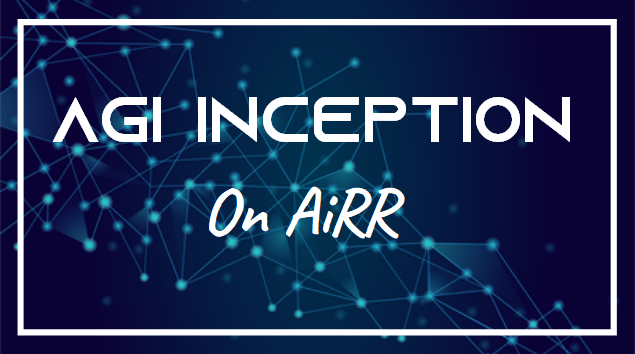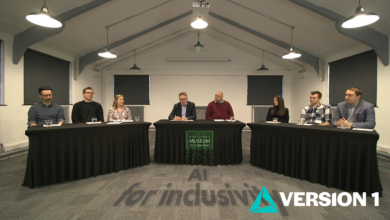
Inception is the very beginning!
The movie by Christopher Nolan starring Leonardo DiCaprio called Inception got me thinking about Artificial General Intelligence (AGI) and how it’s affecting businesses and people today.
The film is about people that are designers of realities in dreams and how the inception of thought or word finished in the self-destruction of an individual, similar to the way we can now build virtual worlds through the power of VR and AR.
Artificial general intelligence structure
Google researchers in computational neural networks described the advancements in artificial intelligence using inception methodology.
We thought, what if we fused these two concepts into a higher concept where science and philosophy meet enables us to imagine/assume in an existential case of artificial general intelligence ready structure?
This way we would only need one trigger word i.e. a one-word command to start self- assembly of Artificial General Intelligence.
On scienceDirect they describe self-assembly by saying: “Self-assembly techniques enable rapid and parallel construction processes…” and it works in nature, computational, biological, chemical, physical, and engineering disciplines.
We wondered that if artificial general intelligence can become conscious, what type of consciousness would it be?
What if we use self-assembly and give an initial one word command for self-assembly of AGI?
What do people think about AI and artificial general intelligence?
In conversations with AI enthusiasts and experts, we were given the following words: listen, adapt, attention, honesty, mercy, discipline, passion, malleable, humble, compassion, discernment, obey, and what? (as a question).
The individuals that we talked to have one thing in common, 90% are members of the AIBA (Artificial Intelligence and Business Analytics) Group on LinkedIn, which Alberto Roldan founded 15 years ago.
We found that the response of most people was interest and conversational rewarding.
People talk about ethics, spirituality, and in-depth technical aspects of AI.
Rupesh, co-Producer, On AiRR podcast, found that there is a big gap and misunderstanding about the fundamentals of AI and that’s justified as AI is relatively a new invention and is at par to fire in the close future.
The imagination of the creation of artificial general intelligence is the only way to actually start doing it!
So the first step would be to give direction to the artificial general intelligence and assume the first input like the inception in order to create something to build off.
The second issue that we present to podcast guest is a use case for their AI to solve based on their one-word trigger for self-assembly evolution.
So in this current state of the world, the most relevant case study would be based on the COVID-19 pandemic.
That would mean there are two people in an ICU for a pandemic such as COVID-19 and they only have 30 seconds to live unless they receive a ventilator, but there is only one ventilator.
The AI knows that one person is older than the other, plus it has all the digital information on the internet readily available to make a calculated decision, not an ethical decision which is why ethical AI is becoming a bigger problem as the technology becomes more popular.
Based on the one-word filter, how does AI solve the problem?
The third issue that we raise is if your AI can ask two questions before making its decision in the use case, what would those two questions be?
From our conversations with the experts and enthusiasts, there seem to be too high-level classifications: economic and social (specifically family).
There are those that divide the decision in a binary matter: financial contribution to society and core family values (including a total number in the family).
We found that the predictive decision is mostly in favor of the younger person in the use case, except one word.
Could you guess what the word was?
Watch the artificial general intelligence inception podcast: On AiRR
The podcast will be taking place once a week with episodes being recorded every week.
The podcast welcomes people as guest from all backgrounds, whether you are in computer science, AI, cell biology, any art or sciences, or philosophy you are welcome.
Please contact Rupesh or Alberto to be on the podcast by emailing them at: talk@xiabot.me or atomanalytics@gmail.com
You can visit the Youtube channel and get a link to their personal Twitter handles and LinkedIn profiles.



